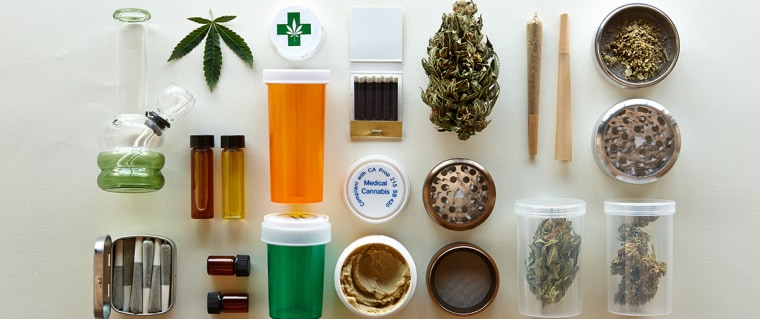When Tiffany Wu first entered the cannabis industry in March, she noticed that Asian Americans involved in the industry were few and far between — a trend the 28-year-old says was made even more apparent after she attended the Marijuana Business Conference and Expo, one of the nation's largest cannabis trade shows attracting thousands of advocates and industry professionals, in Las Vegas in November.
“Anything in favor of giving more access to patients is something we are getting behind. There’s a lot of people who need this.”
“I personally saw maybe less than 15 Asian Americans during my three days there,” Wu, a San Francisco Bay Area business attorney specializing in the cannabis industry, told NBC News.
A quick Google search of the word “cannabis” juxtaposed with “Asian American” will also attest to this fact, explained Wu, a graduate of Harvard Law School as well as a member of the Cannabis Bar Association and the Bay Area chapter of Women Grow. But Wu says she's ready for the conversation around cannabis in the Asian-American community to change.
Earlier this year, Wu and two friends, photographer Ophelia Chong and startup creative director Monica Lo, co-founded a new group to help do just that: Asian Americans for Cannabis Education (AACE) aims to expand marijuana dialogue among Asian Americans, who Wu says are consumers of marijuana but are less likely to be transparent about their use or join the industry. It is one of the first-of-its-kind groups with that goal.
"Part of what we want to do with Asian Americans for Cannabis Education is to open the discussion and let them know that even though we support legalization, we want to be a neutral conduit," Wu said.
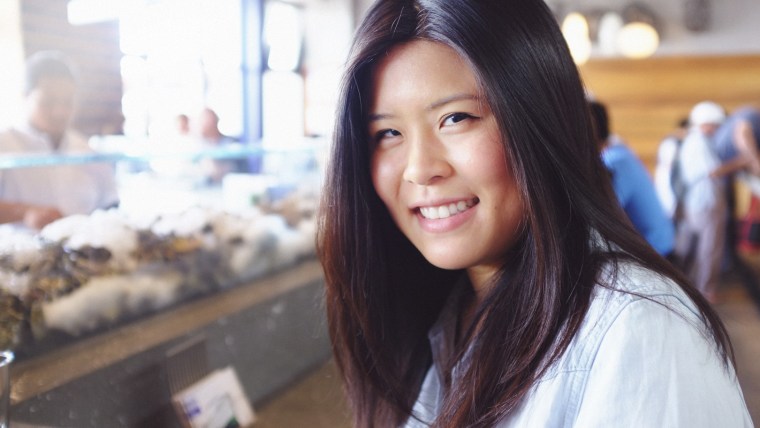
According to a recent study by the Public Policy Institute of California, while 53 percent of California residents are for the legalization of marijuana, Asian Americans polled at 39 percent—the lowest of all identified ethnic groups.
But while the majority of Asian Americans may not support legalization, public health researcher Dr. Juliet P. Lee at the Pacific Institute for Research and Evaluation told NBC News that some people may be attracted to the potential profit involved in the business.
“For many reasons, people are looking for reasons to generate income,” Lee said. “Many people in many cities and states are excited about this income potential.”
Sara, who agreed to speak to NBC News under a pseudonym, says her Asian-American parents entered the cannabis industry in 2008 along with her cousin, who saw it as both an opportunity to dispel myths surrounding cannabis use to his conservative family, as well as a sustainable business.
“In the beginning, they [parents] were against it. It was more of a security reason,” Sara said.
Though her parents were hesitant at first, Sara said they saw her cousin’s clientele base expand, and her parents began to see it as a lucrative business.
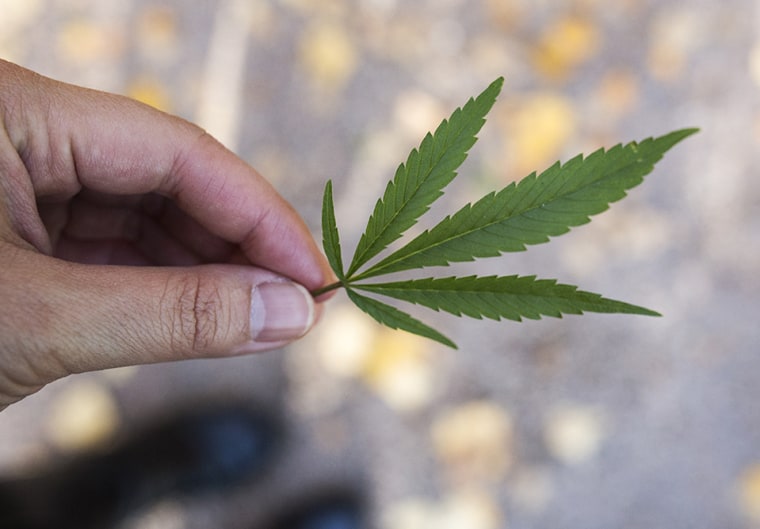
Sara said her family now operates a medical marijuana delivery service for clients in the San Gabriel Valley in Los Angeles County. The service has about 40 regular clients, according to Sara, with orders ranging from $50 to $350 a week.
“There’s little overhead with not having a storefront," Sara said. "Delivery in the beginning was a lot more viable. Right now in San Gabriel, there’s about over 20 [medical marijuana delivery] services online. Some get shut down in passing months, but more spring up.”
"Our goal is to destigmatize and show the real face of cannabis."
She also noted that medical marijuana delivery services felt more secure to operate compared to dispensaries.
“There’s no reason for any police to pull you over as long as you’re a law abiding citizen,” she said. “You’re just bringing medication that some people need to their house for a fee.”
According to the Weedmaps, medical marijuana delivery services have tripled over the past few years nationwide.
Sara believes that through help from younger Asian Americans, the community's elders may become more accepting of cannabis.
“Parents take a lot of medication prescription for different things,” she said. “The younger generation knows that medical marijuana is on the rise. It’s about helping people and improving lives. I think our generation will change the mind of older generations.”
It’s through that kind of cross-generational communication that AACE hopes to break down stigma associated with marijuana. Some of the goals of the organization include addressing the language barrier by hiring translators, gaining access for patients, and having an open discussion about cannabis, according to Wu.
Recently, she and her parents were interviewed in both Cantonese and Mandarin on SingTao Chinese Radio to talk about cannabis in the AAPI community.
Another part of AACE's efforts to combat stereotypes surrounding cannabis is visibility. In October, AACE interviewed comedian and actress Margaret Cho, who spoke more about the stigma surrounding cannabis in the Asian-American community.
“It's a cultural bias that Asians have against drugs in general, but my view on the matter is that marijuana is such a benign high—it's much easier on the body than socially acceptable drugs like alcohol and nicotine, which are especially deadly in our community,” Cho told AACE.
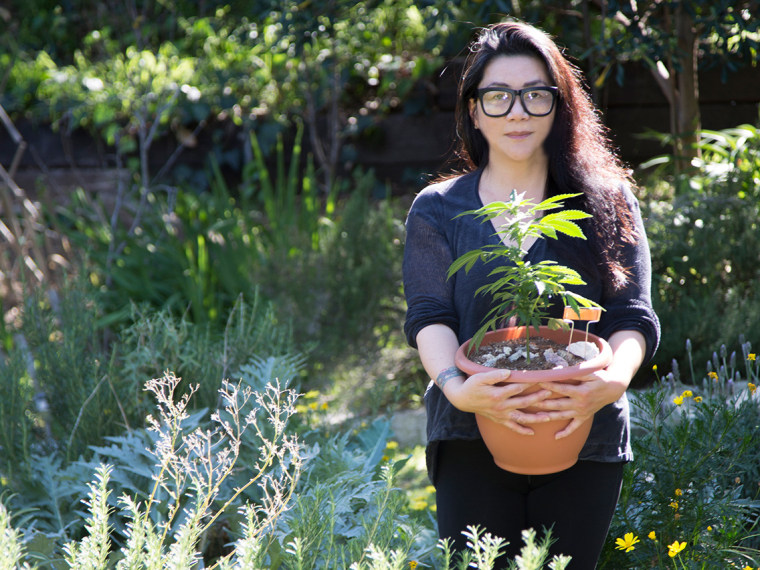
AACE co-founder Ophelia Chong has also been using media to change the conversation around cannabis. Before she joined AACE, Chong had launched a stock photo agency called Stock Pot Images in order to provide images of cannabis that were free from stereotypes.
“I have over 100 embedded photographers in the industry and our goal is to destigmatize and show the real face of cannabis,” Chong told NBC News.
During the time she launched Stock Pot Images, Chong saw her sister, who had been diagnosed with an autoimmune disease that hardens skin and connective tissue called scleroderma, turn to cannabis for pain management. Chong realized that there were very few resources available for Asian Americans who wanted to know more about cannabis. “Our goal is to be the demystifier,” she said. “[It’s] not this big, green dirty monster.”
"Yes, it’s recreational in certain states, but we still see it as illegal: ‘You can’t do that, you’re not going to get a job. Only stoners do that,’” Chong added.
Through AACE, Chong says she hopes to start a conversation and get the community to voice their own opinions – whether they are for or against legalization.
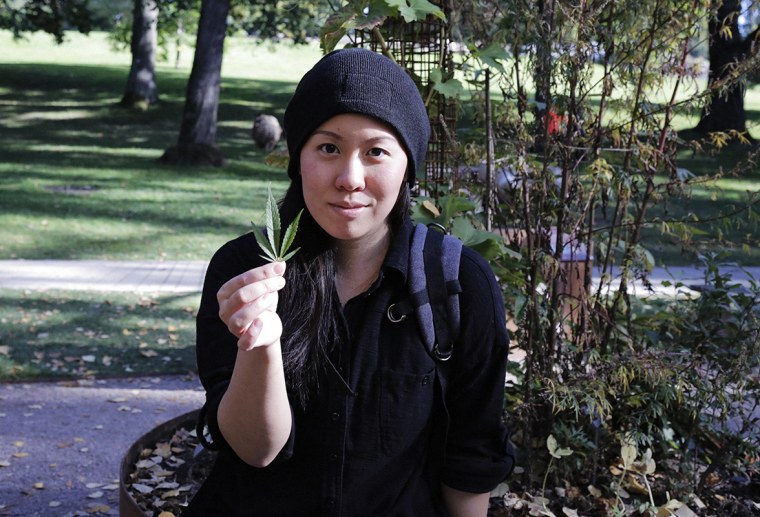
Currently, four states and the District of Columbia have legalized marijuana for recreational use. California, where AACE's Wu, Chong, and Monica Lo are based, has several initiatives proposed by various groups who want to see the Golden State legalize marijuana in 2016.
Lo stands behind providing more access and education to patients and the AAPI community. “Anything in favor of giving more access to patients is something we are getting behind,” Lo, who uses cannabis to help alleviate lower back pain, told NBC News. “There’s a lot of people who need this.”
